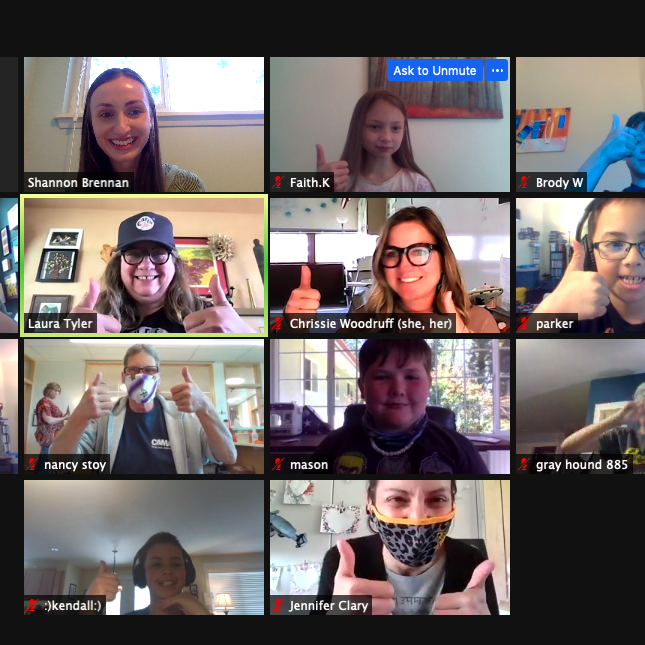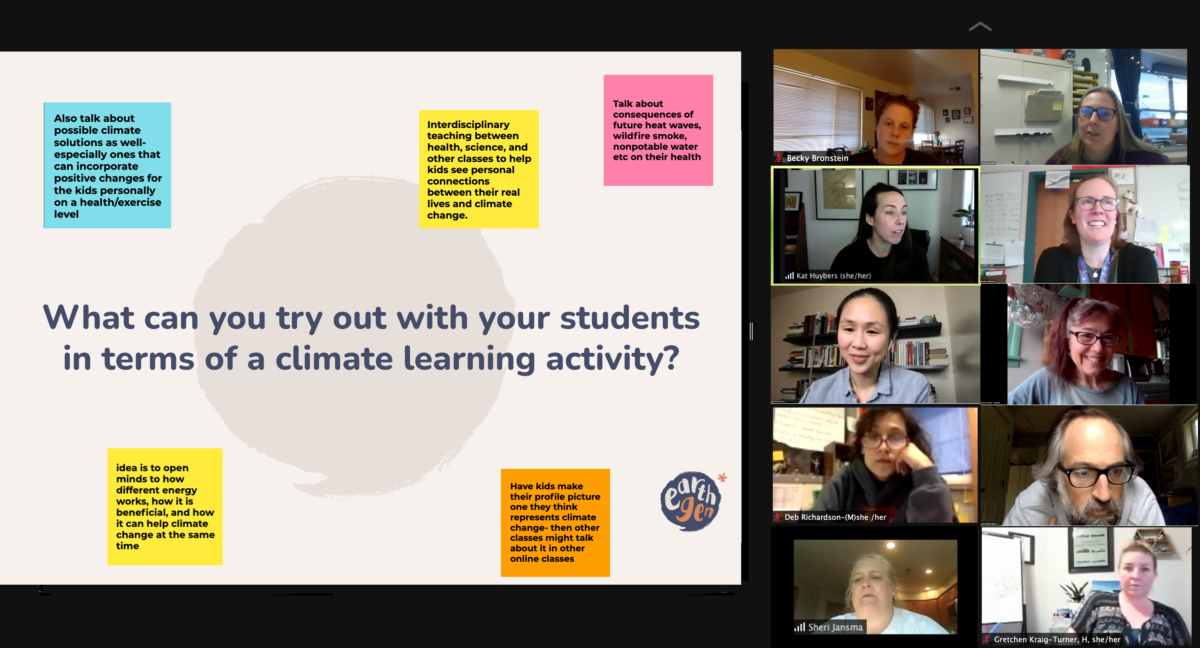
When schools closed suddenly in March 2020 due to the COVID-19 pandemic, EarthGen pivoted quickly to support new remote learning needs.
Teachers lacked experience with remote instruction and were challenged to get kids actively involved in learning from home; scheduled teacher trainings abruptly needed to move online; and school communities needed to find new ways to keep kids engaged. Amidst these challenges, educators across the state recognized the power of environmental learning to catch students’ interest, and they turned to EarthGen for help.
EarthGen At Home
EarthGen rose to the challenge, developing new resources and expanding its offerings to ensure that even during a pandemic, environmental learning and action continued. Teachers across the state utilized EarthGen’s library of remote learning resources and downloaded new, home-based science activities for kindergarten through eighth grade. Some schools, like Wahluke Elementary, partnered with EarthGen to use Google Classroom to complete their planned action projects. At the same time, EarthGen also pivoted to adapt its summer programs for migrant students to a virtual environment, in an effort to help narrow equity gaps exacerbated by the pandemic.
“Teachers, parents, and students are stretched thin. Having these resources developed for at-home learning is a real gift.”
Dr. Annette Venegas, Science Program Specialist, Kent School District
In time for the 2020-2021 school year, EarthGen developed a new School Certification category: At–Home Certification. Educators and Green Team leaders are using the flexible At-Home Certification Kit to earn recognition for projects their students complete at home. The kit includes hands-on activities that show how individual and family choices can make a difference. When students complete their projects, Green Team leaders submit report cards to receive certification rewards for their school. One school, Camas High, documented that students’ home projects, including turning down thermostats, holding Meatless Mondays, and walking or biking instead of driving for short trips, saved more than 7,000 pounds of carbon emissions.
Online Teacher Training
Already a major component of EarthGen’s programs, teacher training became even more important as educators scrambled to develop new approaches to learning in a remote environment. EarthGen’s virtual professional development workshops taught hundreds of teachers to engage their students in learning about climate change using remote platforms such as PearDeck, Jamboard, and Padlet.

During the initial months of the pandemic, EarthGen engaged more than 200 teachers from 27 counties in remote workshops. In the following school year, EarthGen expanded the capacity of its virtual training programs, reaching hundreds more teachers online. Teachers who received training have made those remote learning tools their own, using them creatively in climate science lessons, for student wellbeing checks, and testing students’ understanding in real time as lessons progress.
Food Rescue in Schools
When classrooms were closed, school meal programs continued to operate. InSeattle Public Schools, a pilot food recovery program quickly expanded district-wide in spring 2020. During the 2020-21 school year, the program redirected more than ten thousand pounds of otherwise wasted food to hungry families in the community. EarthGen is working to ensure this program continues in SPS and that more school districts can improve their systems to reduce food waste.
Post-Pandemic Future
After the return to the classroom, EarthGen’s effective, new remote learning resources and strategies will continue to be useful in school communities across the state. Looking ahead, EarthGen will continue to offer online teacher trainings in addition to in-person sessions; remote training is more accessible for many teachers. Next year teachers plan to continue using many of the engaging digital tools and strategies they have learned from EarthGen. Through its successful pandemic pivot, EarthGen has proven that it can support environmental learning with remarkable resilience even during challenging and tumultuous times.